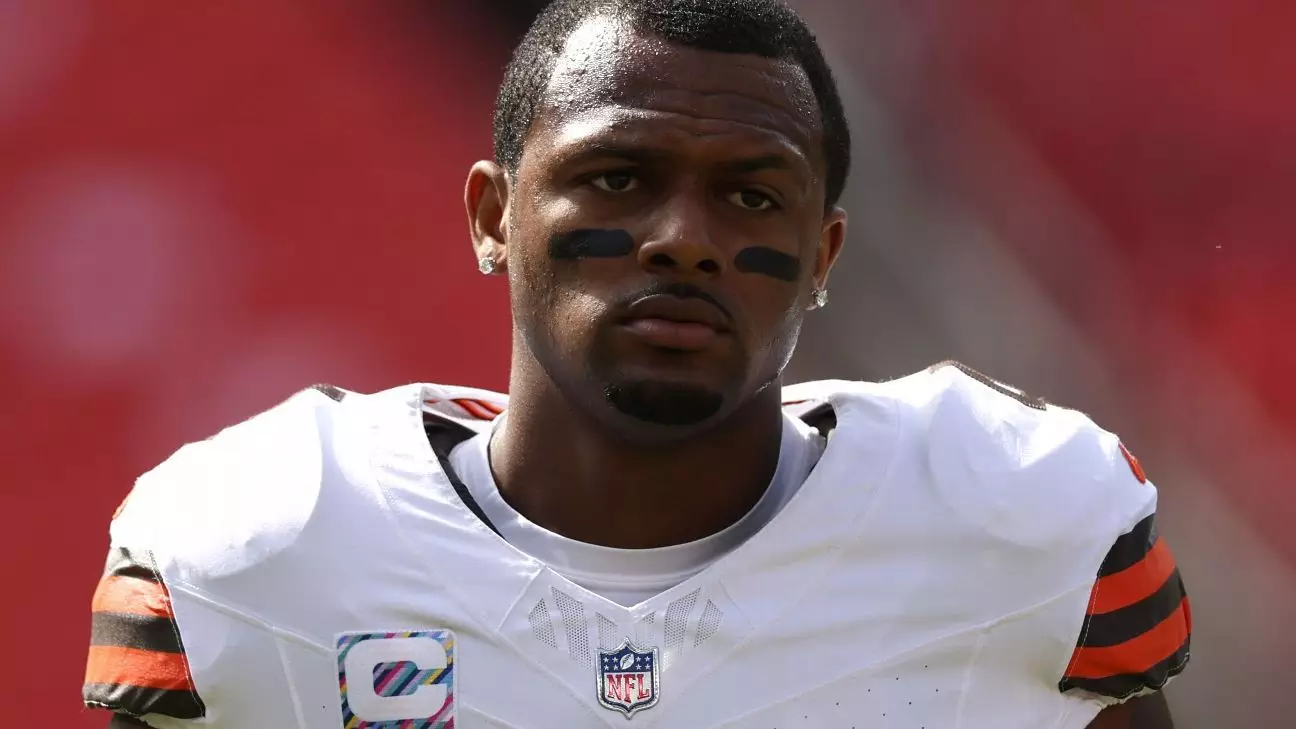In recent years, Deshaun Watson, the Cleveland Browns quarterback, has become a complex figure in the realm of professional sports, primarily due to an array of legal troubles involving allegations of sexual misconduct. With another legal battle now resolved, the implications of these events stretch beyond mere court cases; they resonate deeply with the cultural conversations surrounding sports, accountability, and ethics in the public eye.
Just shy of a month after a new lawsuit was filed against Watson, an outcome was announced that fundamentally alters the narrative surrounding him. According to attorney Tony Buzbee, who represents the woman referred to as Jane Doe in the case, the lawsuit has been settled. While both parties have agreed on a confidentiality clause regarding the details of this settlement, the mere resolution of this case is yet another chapter in Watson’s tumultuous history. His attorney, Rusty Hardin, also confirmed the settlement, underlining that these legal entanglements have become a recurring theme in Watson’s life.
The origins of the lawsuit trace back to an alleged incident from October 2020, when Watson was still a player with the Houston Texans. The case has caused turbulence in the NFL’s ongoing examination of Watson’s conduct under its personal conduct policy. However, it’s significant that, despite the high-profile nature of the case, the league has not yet placed him on the commissioner’s exempt list—demonstrating a complex relationship between accusations and disciplinary actions within the NFL framework.
The recent lawsuit adds layers of complexity to Watson’s ongoing legal issues. In 2022, he faced over two dozen allegations of sexual assault and inappropriate behavior, primarily related to massage therapy sessions. Although he was not criminally charged in these matters—after two grand juries declined to prosecute—he received an 11-game suspension, a fine of $5 million, and was mandated to undergo behavioral evaluation and treatment. This series of events not only tarnished his reputation but also placed him in a precarious position with his new team.
The Browns traded an immense package of draft picks to acquire Watson, handing him a fully guaranteed contract worth $230 million—an unprecedented deal that raised eyebrows across the league. The decision to trade for Watson was polarizing; it sparked debates about ethics, player conduct, and what teams are willing to overlook for talent.
Watson’s case is emblematic of a larger dilemma faced by professional sports: the intersection of accountability and the pursuit of victory. His alleged misconduct raises questions about the culture within the NFL and how it regulates player behavior. The league’s ongoing review of complaints, juxtaposed with the absence of immediate punitive action, raises ethical questions about the standards expected from players and organizations alike.
As Watson continues to start for the Browns despite these serious accusations—reflected in his disappointing performance this season, marked by a total QBR of just 21.0—critics argue that it reflects a systemic reluctance to hold high-profile athletes accountable. Coach Kevin Stefanski’s remarks that he was previously unaware of the allegations further illustrate a disconnect between management and player conduct.
As the dust settles over this recent settlement, the implications for Watson and the Browns are manifold. Although Watson has settled the latest accusation, two lawsuits remain active, with the potential to resurface the controversies tied to his past actions and, ultimately, his future in the NFL. The ongoing inquiries by the NFL also loom large, as the league aims to navigate the intricate relationship between player conduct and public perception.
Watson’s legal troubles serve as a potent reminder of the ethical responsibilities that come with prominence in professional sports. The settlements, ongoing investigations, and Watson’s performance underscore the complicated narrative of an athlete caught between talent and serious accusations. As fans and spectators, it is essential to continue examining these events critically, remembering the overarching societal implications of how we treat both alleged victims and high-profile individuals within sports.


Leave a Reply